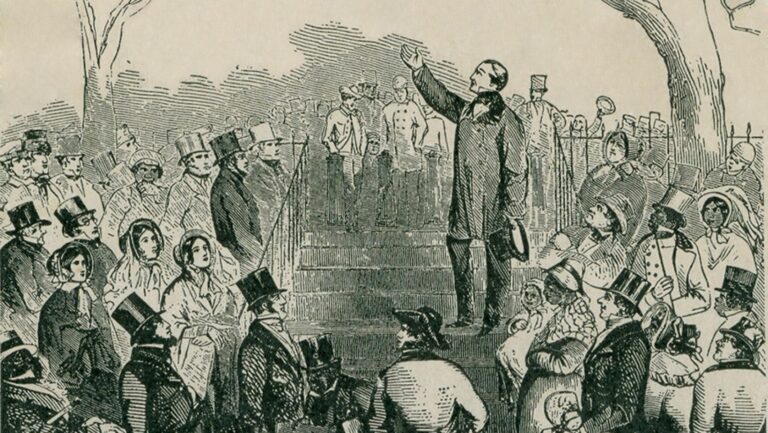
When we delve into the annals of history, few voices echo as profoundly as that of Olaudah Equiano. Born in what’s now modern-day Nigeria, I’m captivated by his life story, which is a testament to human resilience and the quest for freedom. A prominent African involved in the British movement for the abolition of the slave trade, Equiano’s narrative continues to reverberate across centuries.
Earliest Voices Olaudah Equiano
I’m thrilled to dive into the remarkable life of Olaudah Equiano, one of the earliest voices to speak out against slavery. Born in what’s now Nigeria, he was a key figure in the abolitionist movement and authored an influential autobiography.
Birth and Capture
Olaudah Equiano’s tale begins with his birth around 1745 in Essaka, an Igbo village in present-day Nigeria. As a young boy, he lived a peaceful life until everything changed. He was kidnapped at age 11 along with his sister and sold into slavery—an event that marked the start of his tumultuous journey.
Enslaved in West Africa
His early years as a slave were spent serving masters within West Africa itself. It wasn’t long before I found myself shipped across the Atlantic—a journey known infamously as the Middle Passage. His experiences during this time provided a raw and vivid account of slavery from an enslaved person’s perspective.
Middle Passage and Arrival in the New World
Equiano’s voyage on a slave ship across the Atlantic was nothing short of horrific. The conditions onboard were absolutely unbearable—overcrowded quarters, filth, sickness, despair—it’s all there in painful detail within his writings.
Upon arrival in Barbados and later Virginia, he faced further trials as he encountered new forms of brutal treatment under different masters. Eventually purchased by Michael Pascal, a British naval officer who renamed him Gustavus Vassa after the Swedish noble who became king, Equiano began to see changes that would chart his life towards freedom.
Remember though that Equiano’s narrative is just one among millions who suffered similar fates yet never had their stories told. So when we talk about him today it isn’t just about remembering one man—but acknowledging countless others whose voices have been silenced by history.
In my next section I’ll be discussing how Equiano’s life changed after his purchase by Michael Pascal and the crucial role he played in the abolitionist movement. Stay tuned for more on this fascinating figure—his story is just beginning to unfold.
The Interesting Narrative of the Life of Olaudah Equiano
The Purpose of the Narrative
When I first laid eyes on “The Interesting Narrative of the Life of Olaudah Equiano,” it was clear that the purpose extended beyond a simple tale. This autobiography, penned by Equiano himself, served as a powerful tool in advocating for abolitionism. Born in Nigeria and enslaved as a child, Equiano’s experiences highlighted the cruel realities faced by African slaves during the 18th century. He didn’t just narrate his life story—he used his personal journey to challenge prevailing notions about slavery.
Equiano’s narrative is not merely an account—it’s a plea for humanity and justice. He strategically positioned his work to appeal to a wide audience, including those who were indifferent or supportive of slavery. His vivid descriptions revealed the harsh conditions aboard slave ships and plantations, aiming to evoke empathy from readers.

Structure and Themes
Diving into its structure and themes, you’ll find that Equiano’s narrative is more than just chronological storytelling—it weaves together various elements to create an emotional appeal. It starts with his early life in Africa before delving into his enslavement, purchase by a British naval officer, gaining freedom, and eventually becoming an influential abolitionist.
Themes such as identity struggle are prevalent throughout—Equiano grappled with cultural displacement after being torn from his homeland at a young age. Education also plays a critical role; it serves as both Equiano’s savior and catalyst for social mobility once he learned how to read and write. His Christian faith is another key theme—his conversion reflects colonial influence but also becomes instrumental in shaping his anti-slavery views.
Impact and Reception
As one might expect from such an evocative work, “The Interesting Narrative” had quite an impact upon release. It sold out rapidly within three years—a testament to how quickly public sentiment was shifting. Equiano’s narrative accelerated the abolitionist movement in Britain, influencing public opinion and legislation against the slave trade.
Critics were not silent either, but the majority praised it for its vivid imagery and emotional depth. Some skeptics questioned the authenticity of Equiano’s birthplace and experiences—but these doubts didn’t dampen the narrative’s influence on shaping perceptions towards slavery.
Equiano’s narrative remains relevant today as a powerful testament to human resilience amidst adversity. It continues to be widely studied for its historical context, literary merit, and enduring themes which resonate with contemporary issues of race, identity, and equality.

